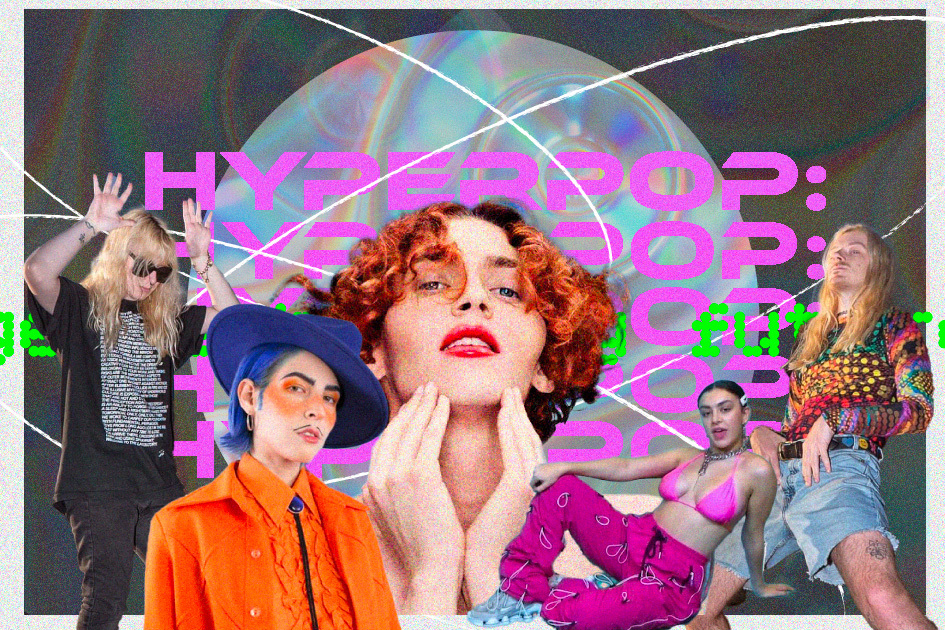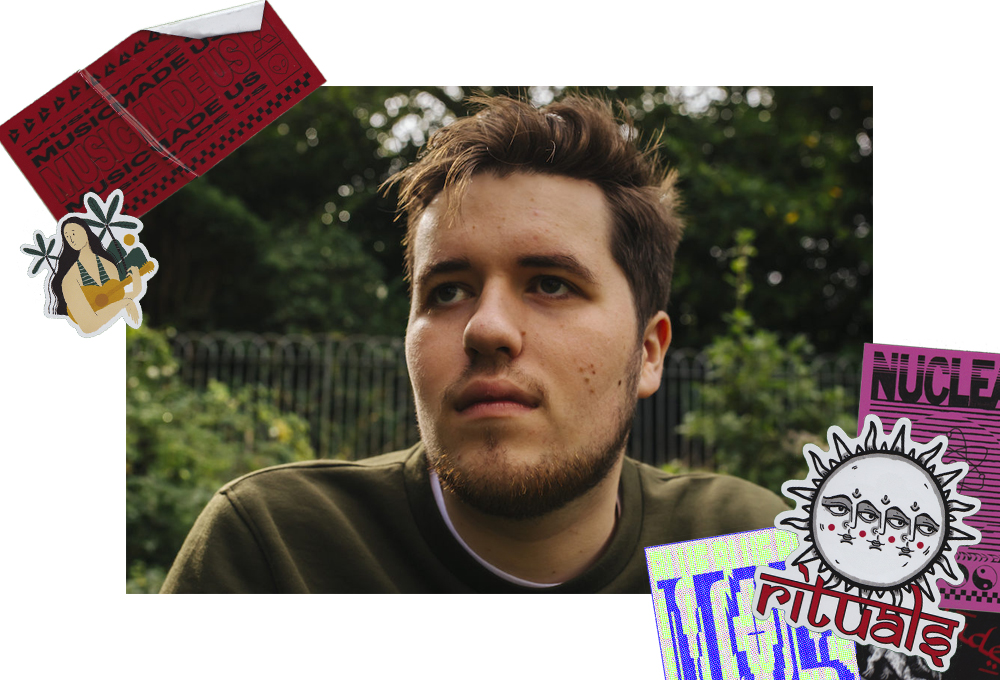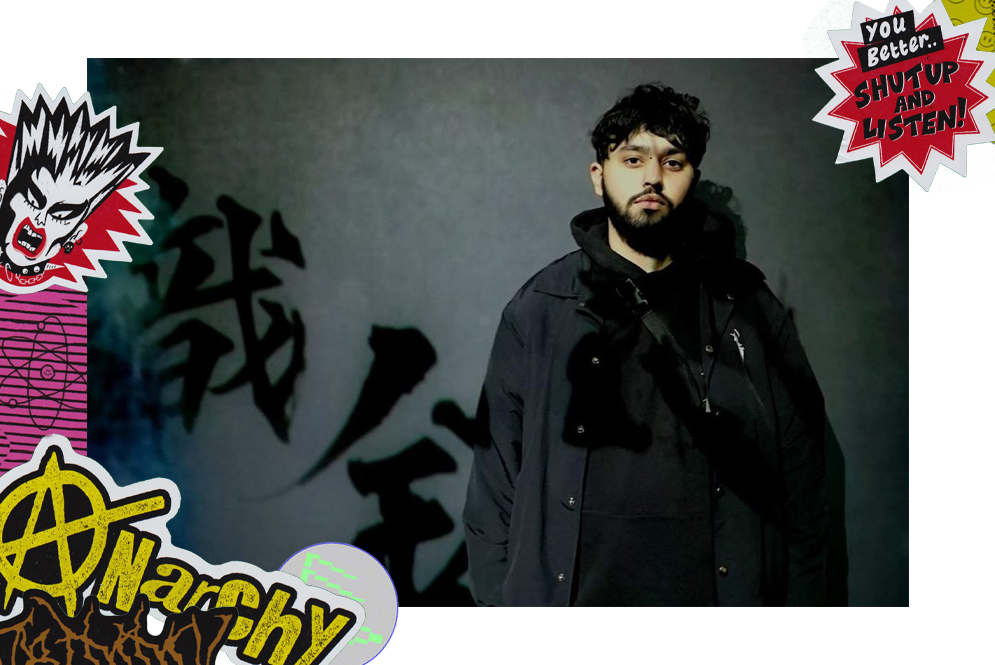As part of our Music Made Us campaign, creatives, music professionals, experts and journalists reflect on how music has been there for us through good times and tumultuous periods that inspire change. Music has sparked, supported, and commented on movements, memories, and moments in time throughout generations.
Our contributors explore these events’ relationship with music – from slavery in the 1800s to the UK’s 80s acid house and rave scene and today’s Black Lives Matter movement. Here, James Mellen, one of our highly talented Marketing, Media and Communications students from Bristol, deep dives into a young genre and explores its impact on mainstream music and how it is managing to penetrate a saturated market.
Typing ‘has music got worse’ into Google gives you fifty-one million results in half a second. There are endless articles analysing why modern music is ‘bad’ and even more Facebook comments claiming ‘music was better in my day!’ and ‘these kids are copying the bands that came before them!’. But is it true? Has music run out of ideas? Are we in an endless cycle of nostalgia and recycling, or is true musical innovation possible in 2022?
In short, it depends where you look.
For years, recycled songs have dominated the mainstream, with the same crop of producers and songwriters getting passed around to the biggest stars. Pop music is also a genre that follows trends, so copying and imitating other artists is what sells records, the main prerogative of record labels. In recent years the biggest ‘trend’ has been an emulation of the 1980s. Most of the time, influence in music is subtle, with gentle nods to artists’ heroes as a tribute rather than imitation. However, this 80s wave that tore through the charts was simply a rebrand and redesign of the synthpop that is so synonymous with the period.
Bands like The 1975 have used retro synth basses, saxophone solos and Tears for Fears-esque instrumentals, and US pop trio LANY have vintage sounds across the entirety of their new record. Dua Lipa and The Weeknd, two of the world’s most loved stars of recent times, channelled 80s-synthesiser-fun with their most recent records, Future Nostalgia and After Hours, respectively. Both albums are meticulously crafted, well-produced pop records, but displaying a sound that has been around for over forty years is hardly ground-breaking or original. So, what’s new?
Arguably one of the most polarising genres of recent times is hyperpop. The name is loose but describes the maximalist take on generic popular music. It brings elements of a multitude of genres, mainly electronic, hip-hop and dance music. The music is rich with auto-tuned and pitch-shifted vocals and heavy, jarring distortion but, like pop music, capitalises on catchy choruses, short runtimes, and shiny aesthetics. While to some, hyperpop feels like nothing more than a parody, the genre could potentially become the countercultural sound of the 2020s.
Hyperpop is a product of the internet. The digitised and pixelated sounds are self-referential to the genre’s birth, and it reflects the digital world it dominates. The lack of sonic boundaries makes the genre so alluring to artists and consumers alike. Hyperpop also feels like a full-circle moment; many artists dominating the scene pull inspiration from sounds of their youth, but due to the digitisation and extreme production styles, it does not give out nostalgic value. Metal subgenres like nu-metal and crunkcore are audible in tracks from artists like Dorian Electra, and this melting pot of genres, with a millennial, digital twist, is what is making it hold its own. Though hyperpop is trying to break into the mainstream, it remains an alternative genre at heart – much like its influences.
One of the pioneers of the microgenre is A.G. Cook – founder of PC Music. Since the label’s inception, Cook has collaborated with artists like Hannah Diamond, SOPHIE, Danny L Harle and most notably Charli XCX. Over the course of six weeks during the first lockdown back in 2020, Cook helped create Charli XCX’s isolation album HOW I’M FEELING NOW, which went on to be nominated for the Mercury Music Prize. Though Charli is now a bonafide popstar with hits under her belt like ‘1999’, ‘Boys’ and ‘Boom Clap’, she continues to rework the traditional pop sound to her taste and is potentially creating avenues for hyperpop artists to sneak into the mainstream. Charli also featured on hyperpop superstars 100 gecs’ remix of their hit track ‘Ringtone’, along with Kero Kero Bonito and Rico Nasty – the latter of which is incorporating hyperpop elements into her own music, like the Dylan Brady (100 gecs)-produced ‘iPhone’.
Another factor pushing hyperpop forward is inclusivity. Many key figures in hyperpop identify as transgender, non-binary or gay. A leading figure in the PC Music and hyperpop sound SOPHIE (who sadly passed away in 2021) uses her music to discuss her experiences as a trans woman, Charli XCX is a famously outspoken ally of the LGBTQ+ community, and Dorian Electra uses they/them pronouns and worked with Refinery29 on a series of music videos on queer history and intersectional feminism. It is becoming more and more common to see LGBTQ+ artists in the music mainstream, but the communities around hyperpop are a much safer space than the comment section on a Facebook post about Harry Styles wearing a dress.
Aside from being its own entity, hyperpop could also be inspiring creatives from all disciplines and genres. The ‘think as far outside of the box as possible’ ethos of the wacky internet genre is a mantra that can be applied to any genre or creative outlet. By simply combining different genres, an artist can instantly make themselves stand out from the saturated market – and people are beginning to do so.
Hyperpop is the culmination of a plethora of different genres, but unlike music found in the mainstream, it does not rely on nostalgic value. The current charts are laden with sombre ballads, viral TikTok tracks and the same artists who were dominating ten years ago. Some music here is great, but it all feels so safe. Hyperpop feels like the first genre or movement in a long time to create its own lane and remain thriving. However, saying hyperpop is the future is a bold statement. Due to the maximalist aesthetic, it is not the most accessible genre, but one cannot deny its originality. Obviously, hyperpop takes influence from things that have come before, but in terms of a current music movement that is slowly breaking into the mainstream, nothing can rival hyperpop and its potential influence on all types of music and art.
Our Music Made Us campaign is told through the students, graduates, journalists, experts and passionate people who have been shaped by this creative outlet. Discover their stories here.



